This week's @steemiteducation homework assignment happens to be right in my wheelhouse.
Specifically, it points out that:
Students of all abilities and backgrounds want classrooms that are inclusive and convey respect. For those students with disabilities, the classroom setting may present certain challenges that need accommodation and consideration.
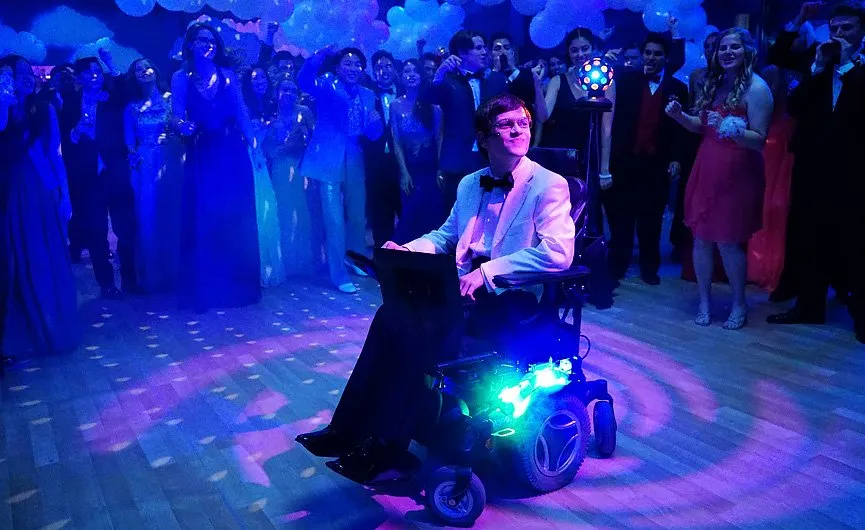
ABC's Speechless is the most realistic deception of a student with special needs that I have ever seen.
Then they ask what we do in order to meet these unique needs.
Although I would never presume to have all of the answers, I have been a special educator for nearly twenty years. During that time, I have worked with students with a variety of disabilities. So although I will not claim to be the guru on the subject, I do have a wealth of experience.
I decided to approach this question as if I were talking to a first year high school teacher (although these basic ideas will transfer to any age). If he or she were to ask, "How do I treat a student with a disability?"
My immediate response would be, "Like a student."
This is of course a play on my overall attitude of always treating a person with a disability... like a person.
In this case, it means that a teacher should interact with a student with special needs the same way he/she interacts with all of their students. Avoid talking down to the student. Make sure to communicate with the student as much as you would with any other student. Be respectful and kind, but don't treat them like a baby.
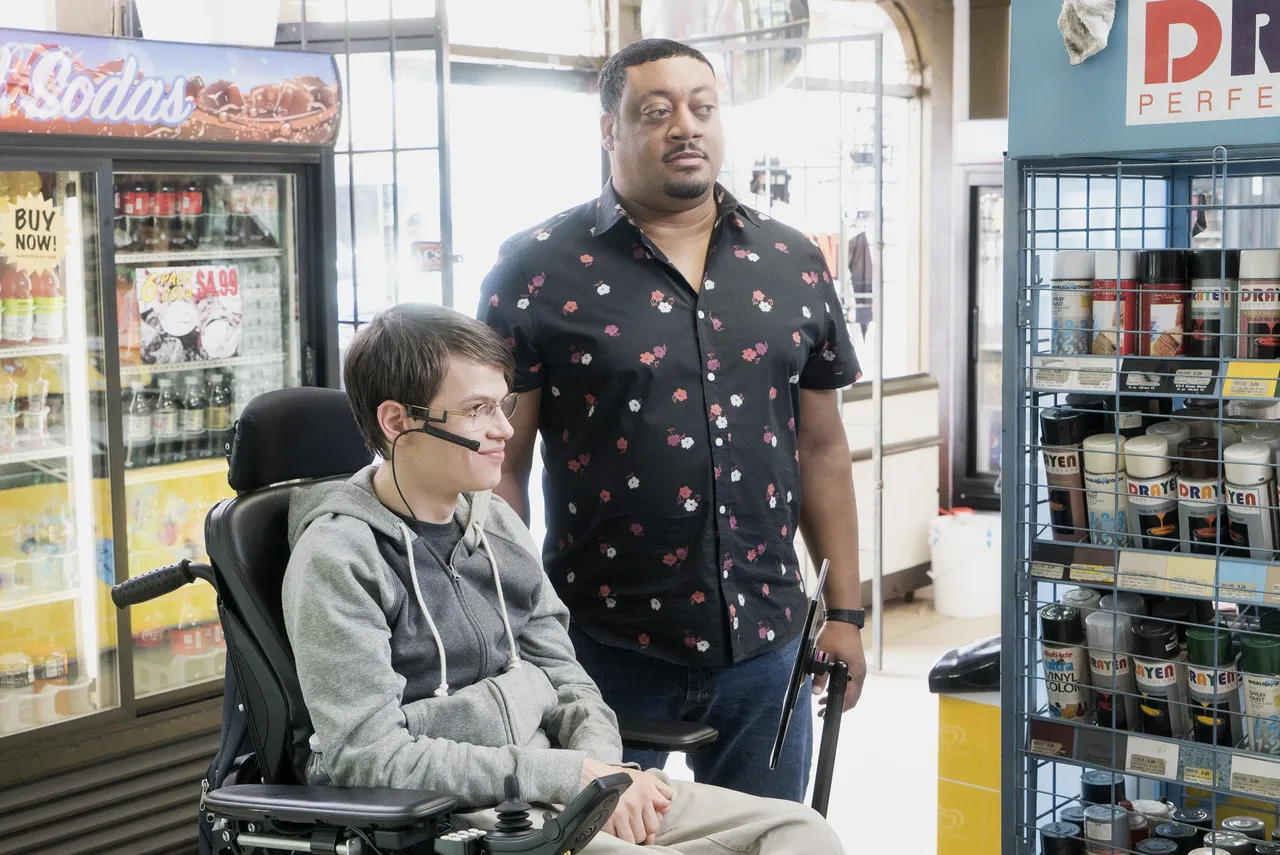
Perhaps the best example of this is a teacher assistant who worked at my school for years. Although he was younger than me and didn't have a fancy piece of parchment to hang on the wall, I learned more from him than any of my college professors. The best way I could describe the way he interacted with his students is that he treated them the way a 21 year old sibling would treat their 15 year old brother. Although he was clearly the boss and he was there to help the students, he also joked around with them the same way he would joke around with anyone. He spoke to them in the same tones and about the same subjects as he would with any other student their age.
He valued and respected them... and they loved him for it.
Next, I would stress the importance of focusing on what each student can do rather than what they cannot. Every student is good at something. A teacher's job is to find that ability and to find ways for the student to apply it in the classrooms. This past year, I had a student in my class who was on the Autism Spectrum. He had a very difficult time putting his thoughts into words. Sometimes he became violent when pressed to do so. But he could draw. Oh my gosh could he draw! Therefore, while others were writing about the Roman Empire, he was drawing it. The cartoons he created were amazing!
If a student is unable to do the exact task other students are attempting, find a way to allow the student to come as close as possible. If a student is in a wheelchair, it is silly to think that he can possibly dunk a basketball... or is it? What if you had a ramp that would allow him access to the basketball rim? While others are improving their leaping ability, he could be working on increasing the arm strength required to roll his chair up the ramp. Or what if you were able to lower the rim so he could use a smaller ramp?
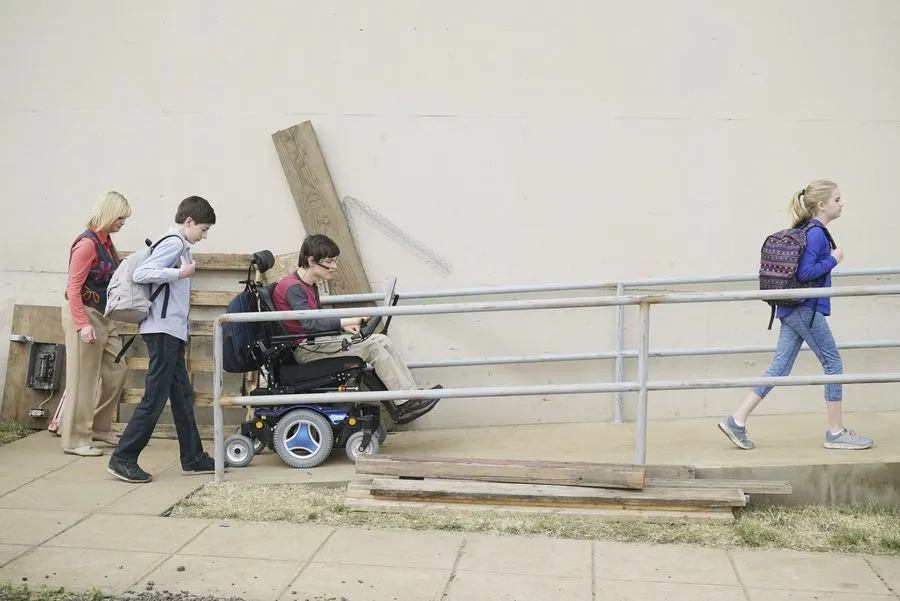
Sometimes all that is needed is a little creativity and the willingness to make changes that will benefit our students.
All of us can do the same things in our academic classes. If a student has a lower reading ability than his classmates, he needs to practice strategies as much as possible, but from time to time, if the message of the reading is what is truly important, then an audio book may do the trick.
Honestly the main barrier is not the student's ability, it is the teachers willingness to be flexible and to find ways for each student to grow as much as possible. If the only thing a teacher will accept is a well written five paragraph essay, then a student who cannot write will be a failure. However, if that same student is allowed to express her ideas verbally, amazing things can happen!
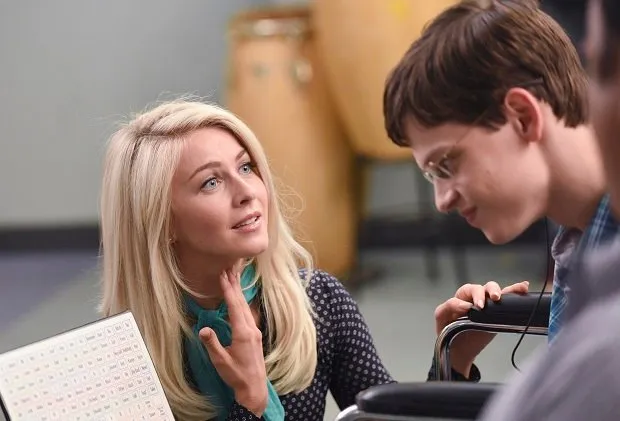
Although I could probably talk this new teacher's ear off for several weeks, I would want to keep my advice as simple as possible. Therefore, I would end with: make sure to have high expectations of your students with disabilities.
Far too many people feel sorry for people with disabilities. Empathy and kindness are wonderful... pity is not. Pity is not going to help a student function in the real world after they graduate. Pity is not going to help them learn how to make and keep friends. Pity is not going to make them a better reader or thinker.
But a teacher will... if that teacher has high expectations for their students.
I realize we are not all physical education teachers, however stories from this realm always seem to make for the best examples. I have a friend who teaches "adventure education". It is an amazing class that teaches kids how to rock climb, camp, and kayak. On the first day of class, Joe always begins by having his kids climb one singular and very high rope. He wants to challenge them right off the bat.
Joe told me this story:
One day, as Joe was conducting his rope lesson, a student entered the gym late. It seems he had a little bit of trouble with his locker and getting into his uniform. The heavy steel door slammed behind him as Reggie and his crutches awkwardly squeezed through the small opening he made. He steadied himself and approached the class.
Joe's mouth dropped. Which counselor was playing a trick on him? "This kid can't use his legs", he thought. "How in the Hell is he going to do anything in this class?", he pondered. Joe hoped that the other students would take so long with the activity that the bell would ring before this student got a chance to embarrass himself. Sadly, none of the other students made it very far, so there was plenty of time for the last student to take his turn.
Joe asked Reggie if he were sure he wanted to try this. He said he would not mark him down if he chose not to. Reggie did indeed want to give it a try. Against his better judgement, Joe helped Reggie into the safety harness that all the students had been required to wear. Reggie laid his crutches down and Joe helped him to the rope.
A minute later Reggie was at the top of the rope ringing the victory bell that no other student had even come close to.
Joe's mouth dropped for a second time that class.
The class clapped and cheered.
One student looked at Joe, smiled and said, "We probably should have told you that Reggie is a total badass."
Joe laughed too.
Then he vowed never to lower his expectations ever again. He now encourages kids with special needs to take his class.
Again, classroom teachers can do the same thing. We can all have high expectations of every student. Kids will rise to the occasion. If we let them know that they do not have to do as much as others because they have to work harder or it takes them longer, then that is what they will do... less. And doing less has never made anyone stronger. A teacher's job is to put kids in potions where they can make themselves stronger. Teachers need to find what level a student is at and then provide challenges that will allow the students to take themselves further than they ever imagined.
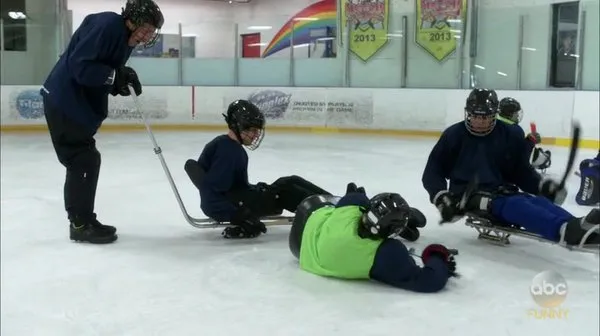
How do I work with students with disabilities? I work with them the same way I work with any student (or my own children):
- I treat them with the same dignity and respect I treat all people
- I focus on what they can do and change my methods to correspond to these abilities
- I have high expectations
Oh and don't be afraid to ask for help. If you are having a tough time finding a way to do all of those things, ask a colleague. You could also ask the student. When it comes to helping kids, we should all be pulling on the same rope.